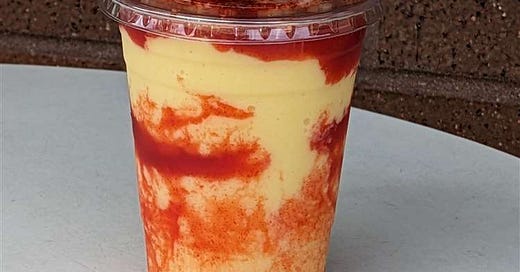In May I walked four miles to Felipe’s in Mid City. I craved their mangonada, a mango-heavy drink shot through with sweet-spicy-salty Chamoy and Tajín. The temperature was in the nineties and the hea…
Keep reading with a 7-day free trial
Subscribe to Topographic Kitchens to keep reading this post and get 7 days of free access to the full post archives.



